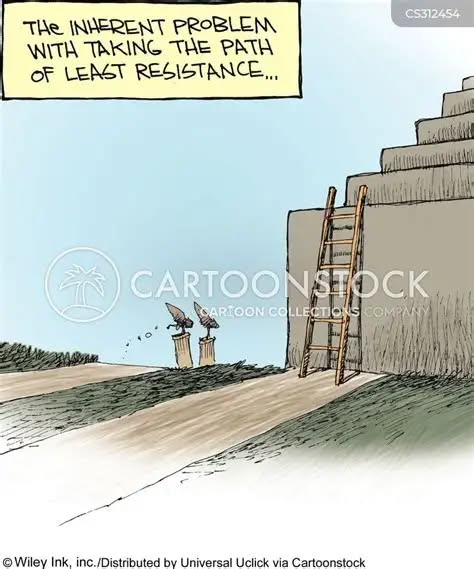 I am going to talk about misers today – not misers with money, but rather, misers with their thought processes.
I am going to talk about misers today – not misers with money, but rather, misers with their thought processes.
Social psychologist Shelley Taylor – who I once saw give a talk about her work while I was in graduate school — is well-known in psychology circles for her quote that people tend to be cognitive misers. Of course, she is also known for her work related to this topic, as well.
However, people are not all equally miserly by any means, in terms of their cognitive processes. Basically, some people are lazy mentally, while others do the work of “thinking things through.”
These individual differences relate to politics, but not in as straightforward a fashion as one might initially expect.
Earlier, I cited evidence that Trump voters were less involved in politics than Harris voters in the 2024 election. Basically, the lower information a voter is, the more likely that person is to have voted for Donald Trump. This is exactly as I would have expected. A reasonable supposition that follows from this fact, is that low information voters think less about politics, and thus, are relative “cognitive misers” in terms of politics – and perhaps in general, but that is not necessary to make my point.
Another hugely important fact about current U.S. politics, is that over the past decade or so, Democrats have become the party of the relatively well-educated, for the most part, while
Republicans have become the party of the not-so-well-educated. Having no more than a high school degree, and perhaps less than that, tends to (but not necessarily) leave voters with less of the critical thinking skills needed to make well-informed choices. Again, this tends to lead to a low-information voting scenario.
Perhaps it is a lack of information, perhaps a personality trait of authoritarianism, and/or a lack of critical thinking skills, that leads many voters to vote for a person who promises to solve their problems, as if by magic. That’s what Donald Trump is to them, or was. He came across as a business whiz with all of the answers, in the view of Trumpsters. I say this in the past tense, because his veneer of competence is seemingly starting to wear off for many of his former supporters, although most Republicans remain loyal to him and his administration. Of course, what I am describing, is also a recipe for authoritarianism, and Groupthink simultaneously.
The reason that I am writing this, is to help explain how easily “cognitive miser” voters can fall into this trap. I now see this as a recurring theme in democracies, which acts as a threat to their long-term functioning. For Trump voters, it’s like “falling off a log;” it’s that easy.
It’s actually the same thing with religion, when people trust their religious texts and ministers to give them the answers to life’s problems, thus bypassing the need to do the heavy cognitive lifting needed to solve life’s complex problems, or at least face them head on. This is a way of understanding why Trump has been so popular with the evangelical Christian, “let God and let go” crowd.
Now, here comes the somewhat complex, but completely understandable part of this discussion. Research by cognitive psychologists Lau and Redlawsk (see politics section of linked Wikipedia entry on cognitive misers), indicates that high cognitive effort people, such as “experts” and “political junkies,” use cognitive shortcuts known as heuristics also, as do low cognitive effort people. The difference is that the “thinkers” are experts as using heuristics, while “non-thinkers” use them naively. Thus, “thinkers” (think progressive voters) actually make better decisions when they use heuristics, while “non-thinkers” (think Trump voters) make worse decisions when they use heuristics.
This actually makes sense, in that high cognitive effort people, just like everyone else, need to economize their thought processes most of the time, but unlike low cognitive effort people, they learn to be proficient at using these cognitive shortcuts well. For instance, they monitor the outcomes of their decisions, so they know when they work or don’t work well, while low cognitive effort people likely presume that their decisions are correct, as in the Dunning-Kruger Effect, or think that God told them how to vote. It’s easier for Trump voters, up to a point, to defend Trump and their decision to vote for him, than it is for them to do the work of analyzing their decisions, if they even have the ability to do that.
Thus, Trump voters take the path of least resistance, at least in the beginning, but eventually, reality kicks in and it becomes clear – if they are in touch with reality, which is questionable for most of them — that they aren’t getting anything like what they were promised. Of course, this is always the problem with “taking the path of least resistance.” Eventually, it leads to more difficulties than people would have ever imagined, something much worse than what they could have had with a carefully planned, cooperative effort. In other words, the path of least resistance is the expedient thing to do in the short-term, but it is the wrong path in the long term.
The best short-term fix is a good dose of reality, which most voters are facing now. The long-term solution, however, involves educating people to have better critical thinking skills, to be more independent thinkers, and to emphasize the importance of political effort, rather than letting people become complacent and taking for granted that our system is working, or that there is nothing they can do to help fix what is broken in our system. These are the kinds of long-term changes that our society needs to make if we are to have, not an increasingly dystopian, oligarch-dominated future, but a progressive one of greater economic and social justice, and ecological wellness.
[Cognitive miser – Wikipedia](https://en.wikipedia.org/wiki/Cognitive_miser)

